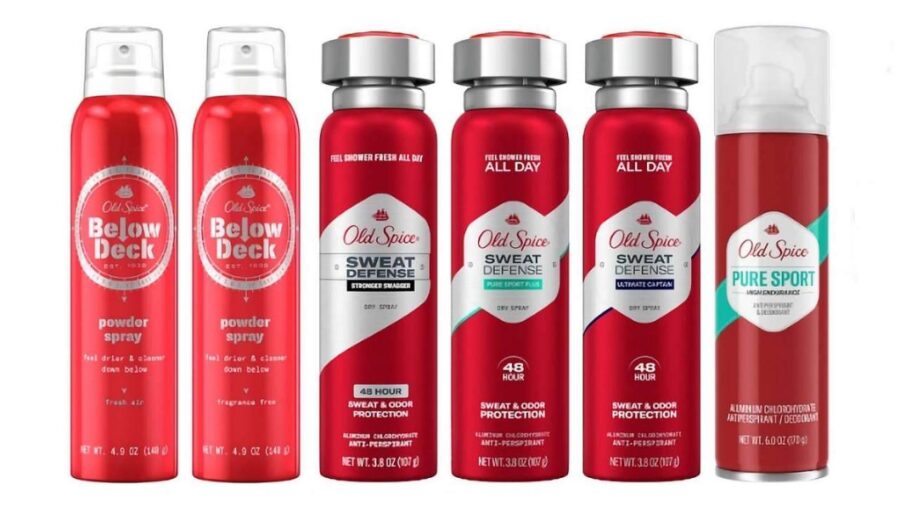Procter & Gamble (P & G) has announced the main memory involving some of its aerosol spray deodorants sold under old spices and secret brands, including several old spices under the deck products. This is a voluntary withdrawal that is initiated because of the existence of benzene, carcinogens that can cause certain cancers in people exposed to high chemical levels.
The new P & G lighting chose Aerosol Old Spice and Secret Schays sold in the US and Canada. These products are sold online and nationally at various retailers in both countries, according to the company, who records that other products under these brands – including things like gel deodorants and solid sticks – not affected by benzene problems and Not yet influenced by the problem of benzene and has not been influenced by the problem of benzene and has not been influenced by the problem of benzene and has not been affected by the problem of benzene and has not been influenced by benzene problems and has not been influenced by the problem of benzene and has not been affected. Remember.
List of products drawn different for each country; Consumers in the United States can find a complete list of P & G products called back on business wire, as well as a separate business wire announcement that details the products called back in Canada. Retailers in both countries have been warned to remember and told to remove the aerosol spray affected by the shelf. In addition, consumers in both countries are advised to dispose of products and can search for refunds through Secret.com and the OldSpace.com website.
Benzene remembers growing
This is the latest in the number of withdrawals involving Benzene. Last week, the US FDA published the memory of Blistex involving several bristan foot aerosol antifungal smell. Many re-withdrawals of Benzene have occurred in the US this year, including one in July from Johnson & Johnson which has an impact on several sunscreen products, and two remember from Bayer and Coppertone in October due to their respective benzene levels.
Health concerns
Although Benzene remains one of the most common chemicals in the United States, steps have been taken to reduce their presence for the concerns of cancer (through EPA). Over the past decade, the number of benzene in gasoline, for example, has reduced under the regulation of the source water toxics (msat) car.
Benzene Regulations have resulted in the development of new technology to deal with chemicals and meet a strict threshold. As specified by digital purification, ExxonMobil Research and Engineering Company (Emre) developed a technology called benzout that uses chemical processes to reduce benzene levels in gasoline. Although other processes exist, ExxonMobil said Benzout technology reduces the cost of refineries by overcoming octane and hydrogen losses caused by alternative methods.
As for consumer aerosol products, this latest withdrawal is likely the results of the analysis conducted by the Connecticut company called value. On November 4, the value published a report that revealed that he had detected “high benzene levels” in several antiperspirant spray batches sold under various brands. Among other things, the company said that the analysis was found to nine FDA boundaries for benzene on several samples.
Based on the findings, value value makes withdrawal requests in addition to finding clearer benzene limits in terms of consumer level products such as cosmetics and body sprays.



